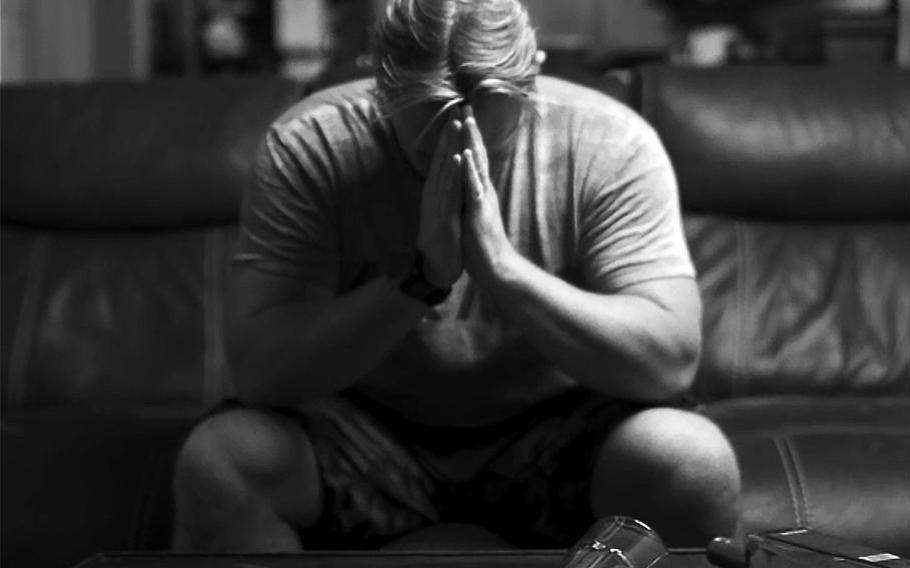
The military’s shortage of mental health workers and an increase in demand for care has forced troops to seek help off base and sometimes wait a month for appointments, according to a Government Accountability Office report released Feb. 6, 2024. (Defense Department)
The military’s shortage of mental health workers and an increase in demand for care has forced troops to seek help off base and sometimes wait a month for appointments, according to a new government report.
The Government Accountability Office found 43% of authorized behavioral health care jobs in the military’s Defense Health Agency were vacant as of January 2023, said Alyssa Hundrup, author of the report titled “Defense Health Care: DOD Should Monitor Urgent Referrals to Civilian Behavioral Health Providers to Ensure Timely Care,” which was released Tuesday.
“We also heard that facilities are facing hiring challenges, such as slow hiring processes or they’re not able to offer competitive pay when compared to the private sector or other agencies,” she said.
Mental health workers can include psychiatrists and nurse practitioners, as well as clinical social workers, licensed professional counselors, substance abuse counselors, therapists and nurses who do not prescribe medicine but are trained to diagnose and provide counseling.
The staffing shortages found by the GAO stand in contrast to a recommendation from the Suicide Prevention and Response Independent Review Committee created last year by Defense Secretary Lloyd Austin. The committee called for an increase in mental health services and appointment availability.
The Defense Health Agency typically aims to keep medical care for troops within military treatment facilities. When that’s not available, DHA will send troops to civilian providers that accept Tricare, the military’s health insurance.
To mitigate the effects of vacancies in mental health care jobs, officials from selected military treatment facilities reported taking several steps, including more referrals to facilities off base and prioritizing initial appointments over follow-ups, according to the report.
When service members go into a local community for care, Hundrup said DHA is not doing enough to monitor how quickly those with urgent referrals are being seen. Without doing so, the agency can’t identify and address what is causing delays in care.
In response to the GAO’s findings, DHA director Lt. Gen. Telita Crosland said when service members are referred off base, they are responsible for making their own appointments, which gives DHA less control over meeting a standard. At military facilities, appointments are made for them.
GAO found when looking at fiscal 2022 data that initial routine appointments were scheduled within 16 days on average in military facilities and about 30 days off base. The Defense Department mandates these appointments take place within 28 days, Hundrup said in a GAO podcast about the report.
The military is not alone in its shortages. Nationwide there are not enough mental health workers to meet demand, according to the National Institute for Health Care Management Foundation. Nearly half of all Americans live in a region lacking enough mental health workers.
This could also be exacerbating the off-base wait times, Hundrup said.
“Specific to the Tricare network, we heard that some service members had a hard time finding people that would accept Tricare or that had availability,” she said.
Urgent appointments were met the same day on military bases, while it could take between two and three weeks at civilian facilities. However, there is no set standard for how quickly urgent referrals should be seen in its civilian network, she said.
“[The Defense Department] has explained to us that they don’t have this because it can really depend, vary based on clinical need and what the provider indicates,” she said. “We certainly appreciate that clinical needs vary, but with timeframes of over two and three weeks, it’s hard to see how under any circumstance that would be considered expedited or urgent.”
Hundrup said she did see DHA making strides to improve wait times. The agency has launched a physician recruitment team, is piloting a program to triage some patients into non-medical settings, such as counseling, and is preparing to expand telehealth appointments.
However, Lt. Col. Chris Paine, chief of behavioral health at Carl R. Darnall Army Medical Center at Fort Cavazos in Texas, said during an October interview that the triage program to send soldiers to chaplains or targeted counseling services only worked in the short term. In the end, the soldier gets to choose, and many preferred a medical health care worker.
“No one really goes to a cardiologist and says, ‘I have a heart problem.’ You go to primary care, primary care does an assessment and then based on that assessment, they’ll refer you to a specialty service,” Paine said.
To normalize mental health care, the Army directed soldiers to go straight to medical staff, he said.
“In some ways, we got what we were asking for and then some. The system is just trying to adapt to that influx,” Paine said.
He also participates in a DHA working group looking to reduce the time it takes to hire new mental health care workers. Across DHA, it can take more than four months to hire a new employee. It can be longer in mental health, he said.
“The fundamental problem is we attract people faster than our time-to-hire process allows us to backfill them. There are many initiatives being done to try to fix that. We’ve not fixed it yet,” Paine said. “It’s the lowest of the low because we don’t have leaders who will tolerate this anymore. We have nowhere to go but up and I really do believe that.”